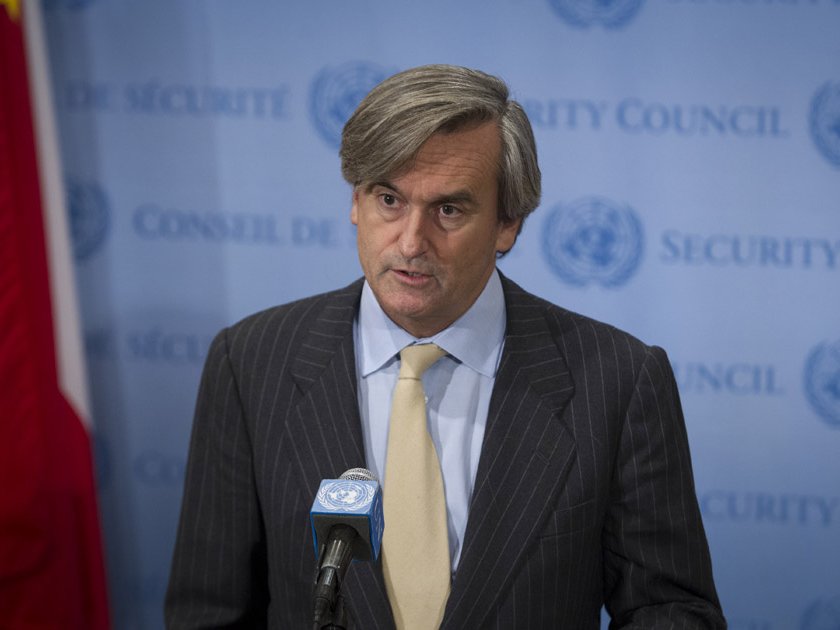On the margins of ICM’s fifth retreat on women, peace and security, Warren Hoge of the International Peace Institute spoke to Román Oyarzun Marchesi, Permanent Representative of Spain to the United Nations, about Security Council Resolution 1325, which highlights the important role of women in the resolution and prevention of conflicts, and Spain’s plans for the women, peace and security agenda when it has the presidency of the Security Council in October.
Listen to the interview:
In your experience on the Security Council listening to reports from the field, are you struck by the fact that 1325, up until now, does not get the kind of attention it ought to be getting?
Absolutely. My impression is that we have made a very good effort in the Security Council, and 1325 is getting more and more attention, but since I joined the council the 1st of January, I have seen that it does not receive enough attention. I have attended most of the consultations and most of the open debates, and I have to say that 1325 is not as high on the agenda as it should be.
I think that when it comes to SRSGs [Special Representative of the Secretary-General] reporting about situations on the ground, they should make a bigger point about 1325, the participation of woman in peace processes and in peacebuilding.
In October, when Spain has the presidency of the Security Council, does Spain have plans to bring that kind of attention to 1325, and quite specifically, what would you like to see have happen to the resolution?
The most important day of the Spanish presidency is going to be the 22nd of October, because that’s the day that we have chosen for the general debate on 1325, and it’s the day in which we will be, hopefully, able to adopt a new resolution that will establish the new rules of woman, peace and security for the whole world. We are going to have the debate on a ministerial level, and we are going to campaign a lot— not only in Europe, but in the capitals—to have the maximum number of ministers.
I think we’re going to get the attention needed, and that it’s going to be a big event. I would even say that it should be one of the most important days of the Security Council in 2015 because it will establish the agenda of women peace and security in the decades to come.
Is there a difference between enforcing 1325 in countries where there is an active UN presence—a peacekeeping force—and countries where there is not, and if there is such a difference, is that something you’re going to try to overcome also in looking at 1325 in October?
Yes there is a big difference, because where you have peacekeeping operations, you have eyes on the ground and you have a different responsibility because you know exactly what’s happening. Where you don’t have a peacekeeping operation, it’s much more difficult to implement and to respect resolutions adopted by the Security Council.
I will concentrate on a first phase in countries where we have peacekeeping operations, and we will try to strengthen those peacekeeping operations in such a way that 1325 is much higher on the agenda.

